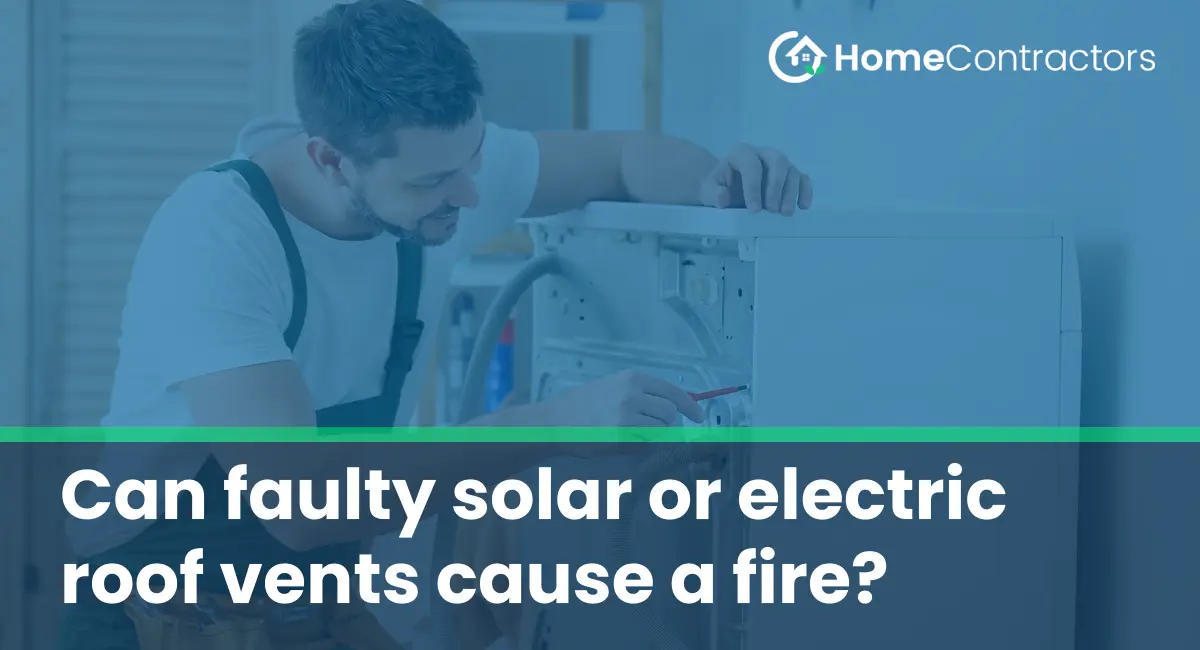Solar and electric roof vents are popular choices for homeowners looking to improve ventilation in their homes. These vents help circulate air, expel moisture, and reduce heat buildup, resulting in improved indoor air quality and energy efficiency. However, it is essential to consider the potential risks associated with these devices. One common concern is whether faulty solar or electric roof vents can cause a fire. In this article, we will explore this topic and discuss the factors that contribute to fire hazards, as well as necessary precautions to mitigate these risks.
Understanding Solar and Electric Roof Vents:
Solar and electric roof vents are specifically designed to remove hot air and moisture from attics and other enclosed spaces. Solar vents incorporate photovoltaic panels that generate electricity from sunlight to power the fan, while electric vents rely on electricity from the grid. Both types of vents have similar functions and benefits but differ in terms of power source.
Potential Fire Hazards:
While solar and electric roof vents are generally considered safe, faulty or improperly installed vents can pose fire hazards. Several factors can contribute to these risks:
1. Electrical Issues:
a. Short circuits: Faulty wiring or improper installation can result in short circuits, which can cause sparks and potentially start a fire.
b. Overheating: If the vent fan motor overheats due to a malfunction or lack of proper maintenance, it can ignite nearby combustible materials.
2. Poor Ventilation Design:
a. Accumulation of debris: Inadequate maintenance may lead to the buildup of dust, leaves, or other debris around the vent fan. If these materials ignite, it can result in a fire.
b. Insufficient clearance: Improperly placed vents may come into contact with insulation or other flammable materials, increasing the risk of fire.
Precautions and Safety Measures:
To minimize the likelihood of a fire caused by faulty solar or electric roof vents, homeowners should follow these safety guidelines:
1. Professional Installation:
Ensure that the installation of your solar or electric roof vents is done by a licensed professional who is knowledgeable about local building codes and safety requirements. This helps guarantee proper wiring, adequate clearances, and overall safe installation.
2. Regular Inspection and Maintenance:
Schedule routine inspections to check for any signs of damage, such as loose connections, damaged wiring, or excessive heat. Employ a professional for regular maintenance, including cleaning the vents and removing any debris that may accumulate over time.
3. Use High-Quality Products:
Invest in well-regarded and certified solar or electric roof vents from reputable manufacturers. These products undergo rigorous testing to ensure compliance with safety standards.
4. Maintain Adequate Clearance:
Ensure there is enough clearance around the vent to prevent contact with combustible materials, such as insulation, wood, or debris.
While solar and electric roof vents provide numerous benefits to homeowners, it is crucial to be aware of the potential fire hazards associated with these devices. Faulty installation, poor ventilation design, and improper maintenance can increase the risk of a fire. By following precautions such as professional installation, regular inspections, and maintenance, using high-quality products, and maintaining adequate clearance, homeowners can mitigate these risks significantly. It is essential to prioritize safety and ensure the proper functioning of these ventilation systems to enjoy the benefits they offer while avoiding potential fire incidents.
